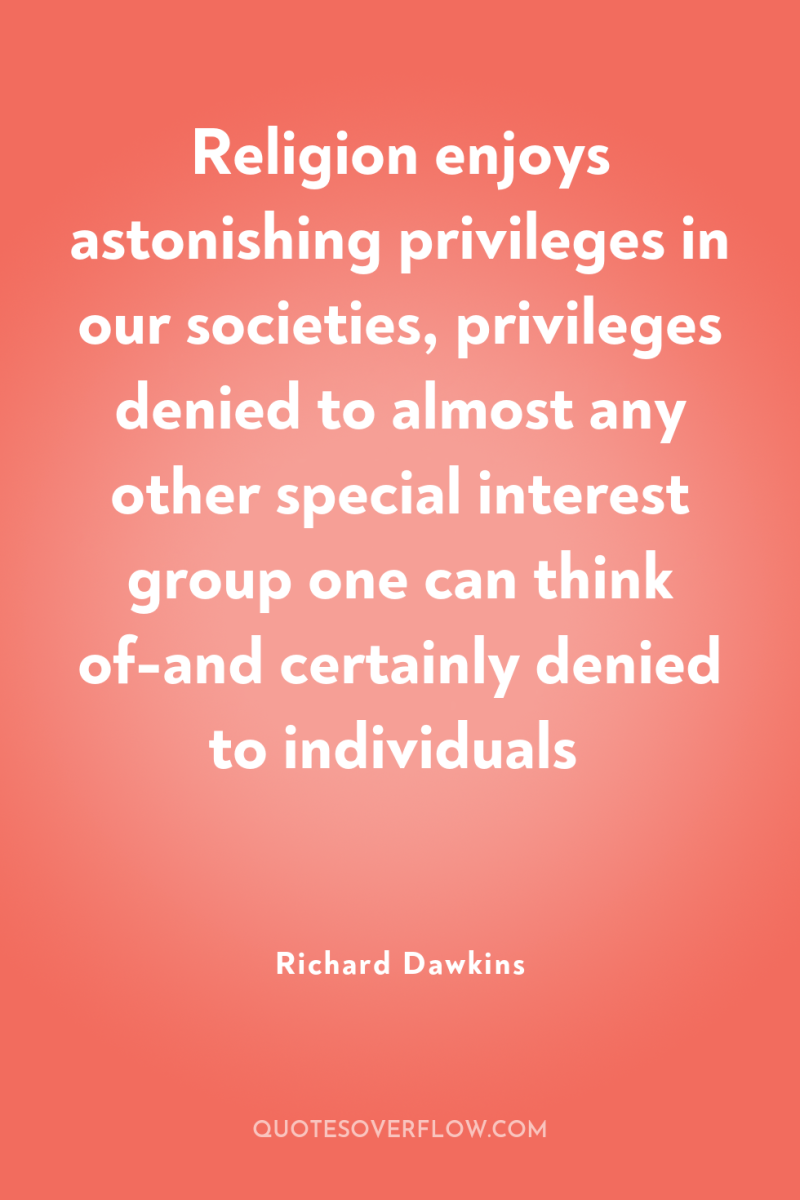
1
Religion enjoys astonishing privileges in our societies, privileges denied to almost any other special interest group one can think of-and certainly denied to individualsRichard Dawkins
2
Problems arise when (especially) theologians use such metaphorical language without realizing that that is what they are doing, and without even realizing that there is a distinction between metaphor and reality — saying something like: ‘It is not important whether Jesus really fed the five thousand. What matters is what the idea of the story means to us.’ Actually it is important, because millions of devout people do believe the Bible is literally true.Richard Dawkins
3
I am fascinated by the evolution of language, and how local versions diverge to become dialects like Cornish English and Geordie and then imperceptibly diverge further to become mutually unintelligible but obviously related languages like German and Dutch. The analogy to genetic evolution is close enough to be illuminating and misleading at the same time. When populations diverge to become species, the time of separation is defined as the moment when they can no longer interbreed. I suggest that two dialects should be deemed to reach the status of separate languages when they have diverged to an analogously critical point: the point where, if a native speaker of one attempts to speak the other it is taken as a compliment rather than as an insult. .Richard Dawkins
4
If the second dinosaur to the left of the tall cycad tree had not happened to sneeze and thereby fail to catch the tiny, shrew-like ancestor of all the mammals, we should none of us be here.Richard Dawkins
5
We wanted to be accepted by our fellows, especially the influential natural leaders among us; and the ethos of my peers was — until my last year at Oundle — anti-intellectual. You had to pretend to be working less hard than you actually were. Native ability was respected; hard work was not. It was the same on the sports field. Sportsmen were admired more than scholars in any case. But if you could achieve sporting brilliance without training, so much the better. Why is native ability more admired than hard graft? Shouldn’t it be the other way around?.Richard Dawkins